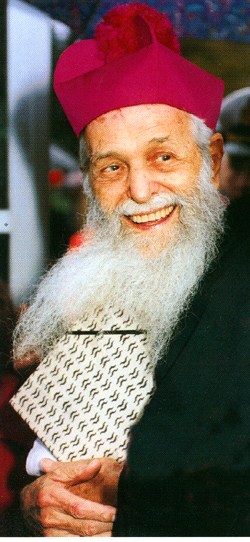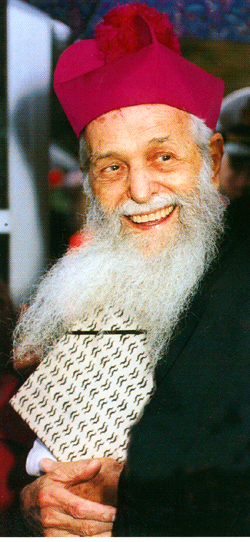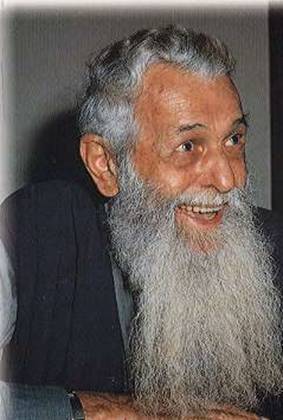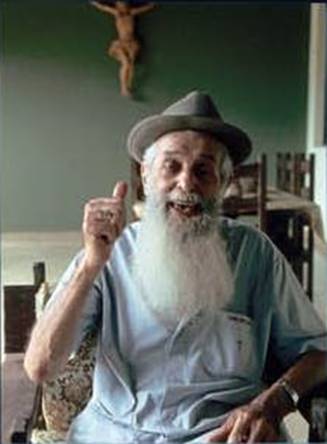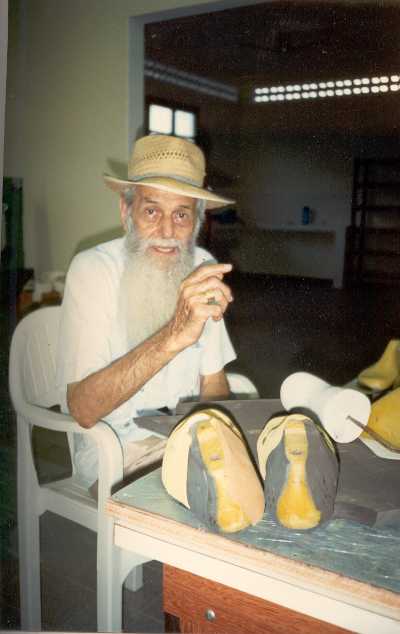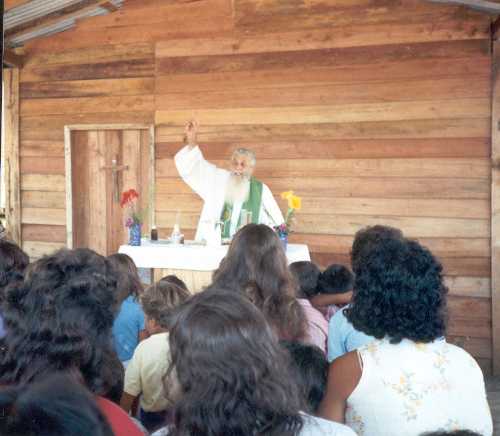Born in Erba, Como, Lombardy, Italy, Pirovano was ordained to the priesthood at 26 years of age through the Pontifical Institute for Foreign Missions on December 20, 1941.
Moving to Brazil as a missionary in 1946, at the early age of 34, he was named apostolic administrator of Macapá, Amapa, on January 14, 1950.
Pope Pius XII named Pirovano as the First Prelate of Macapá, on July 21, 1955, receiving his episcopal consecration with the Titular See of Hadriani ad Olympum on the following November 13, from Cardinal Giovanni Battista Montini, assisted by Archbishop Gaetano Pollio PIME., and Bishop Mario Civelli PIME., During his episcopate in Brazil, Pirovano founded several PIME Missions in the Amazon Region.
On January 30, 1964, Fr. Augusto Lombardi, Superior General of the PIME, suddenly died and immediately a new General Chapter was convened by Fr. Morelli, Vicar General of Fr. Lombardi, in Rome. During that Assembly, held between March 5 and April 15, 1965, Monsignor Aristide Pirovano was elected as the new Superior General.
One of the most urgent issues he had to confront as superior was the poor economic situation of the institute. He looked for benefactors and sponsors among the well-to-do families of Italy and through the financial support coming from the U.S. He was able to bring the Institute "above water" and able to breath again.
In twelve years of governance, from 1965 until 1977, Pirovano built the PIME Regional Headquarters in Hong Kong, Eluru and Bombay (India), São Paolo, Macapa', Belem, Parintins (Brazil), Bissau (Guinea, Africa) and the formation houses in Brazil and in the United States.
In 1973, Bishop Pirovano consolidated the PIME Theologate of Gaeta with that of Milan. Pirovano used to repeat often: "PIME is a small institute: we cannot afford to scatter our resources." Many of his choices were motivated by this conviction.
After Vatican II the practice of mission changed: it was no longer the concentration of many missionaries in a given area "commissioned" by the Holy See, but rather the distribution of the personnel in several local churches at the disposal of the local bishops. In the past the Holy See would entrust a certain non-Christian territory to the care of a specific missionary institute. Since 1850, PIME had followed that missionary strategy founding around 25 dioceses in India, China, and Burma.
Pirovano sent some PIME missionaries to work in new mission areas of Africa - in Cameroon, 1968; in Ivory Coast, 1972), of Asia (in Thailand, 1972; in the Philippines, 1968), and of Brazil (Sta. Catariña State and Mato Groso).
In Asia, Mons. Pirovano handed over 5 dioceses run by PIME bishops to local bishops: Jalpaiguri (India, 1967), Hong Kong (1969) Kengtung (Burma, 1972), and Vijayawada (India, 1972). In this "handing over" of the dioceses, everything built and established by PIME in those territories became propriety of the diocese and at the full disposal of the bishops. PIME priests would remain involved in the missionary work, however, in order to facilitate the growth of these young churches. This is a wonderful example of the style PIME acquired in dealing with the local churches.
Another main concern of Monsignor Pirovano was the formation of new members of the Institute. It was a difficult and delicate time for the houses of Formation and for the schools of theology. The 1970's were the years of the "Protest" ("gli anni della contestazione") in Europe following the Chinese Cultural revolution. The new generations rebelled against any traditional structure and establishment in the society. New ways of thinking and acting spread quickly among the youth and that affected even the Church as a traditional institution. Seminarians clamored their complaints against the Superiors and the Formators and this caused frequent re-shuffling of the formation teams. In 1974, Pirovano took the drastic decision to close the Theological Seminary of Milan and scattered the seminarians to several PIME houses in Italy in order to pursue their studies in the diocesan schools. The following year the choice was made to have only a theological Seminary in Monza, close to Milan. It is still functioning today.
In 1969, the missionary magazine "Le Missioni Cattoliche" became "Mondo e Missione", a name that has been kept up to today. The focus of the magazine is to present the missionary work of the Church all over the world and to promote missionary awareness among the clergy and in the parishes.
Bishop Pirovano died on February 3, 1997, at 11.40 am., aged 81. At his funeral Mass, the Superior General Fr. Franco Cagnasso described him as "a man of strong, practical, and essential faith," a faith nurtured by constant prayer and apostolic zeal. During the confusing years of the "protest" he urged the missionaries to be faithful to the Roman Pontiff and to love the Church they were serving.
"In the missions you go to preach Christ, crucified and risen: Christ and not yourselves!" This was his constant refrain to the young missionaries ready to leave for the missions.
According to his wishes, Pirovano was buried at the cemetery of his native Erba, "so that his grave would attract a teenage boy or girl passing by to say a prayer and maybe become interested in missionary life."
Born in Erba, Como, Lombardy, Italy, Pirovano was ordained to the priesthood at 26 years of age through the Pontifical Institute for Foreign Missions on December 20, 1941.
Moving to Brazil as a missionary in 1946, at the early age of 34, he was named apostolic administrator of Macapá, Amapa, on January 14, 1950.
Pope Pius XII named Pirovano as the First Prelate of Macapá, on July 21, 1955, receiving his episcopal consecration with the Titular See of Hadriani ad Olympum on the following November 13, from Cardinal Giovanni Battista Montini, assisted by Archbishop Gaetano Pollio PIME., and Bishop Mario Civelli PIME., During his episcopate in Brazil, Pirovano founded several PIME Missions in the Amazon Region.
On January 30, 1964, Fr. Augusto Lombardi, Superior General of the PIME, suddenly died and immediately a new General Chapter was convened by Fr. Morelli, Vicar General of Fr. Lombardi, in Rome. During that Assembly, held between March 5 and April 15, 1965, Monsignor Aristide Pirovano was elected as the new Superior General.
One of the most urgent issues he had to confront as superior was the poor economic situation of the institute. He looked for benefactors and sponsors among the well-to-do families of Italy and through the financial support coming from the U.S. He was able to bring the Institute "above water" and able to breath again.
In twelve years of governance, from 1965 until 1977, Pirovano built the PIME Regional Headquarters in Hong Kong, Eluru and Bombay (India), São Paolo, Macapa', Belem, Parintins (Brazil), Bissau (Guinea, Africa) and the formation houses in Brazil and in the United States.
In 1973, Bishop Pirovano consolidated the PIME Theologate of Gaeta with that of Milan. Pirovano used to repeat often: "PIME is a small institute: we cannot afford to scatter our resources." Many of his choices were motivated by this conviction.
After Vatican II the practice of mission changed: it was no longer the concentration of many missionaries in a given area "commissioned" by the Holy See, but rather the distribution of the personnel in several local churches at the disposal of the local bishops. In the past the Holy See would entrust a certain non-Christian territory to the care of a specific missionary institute. Since 1850, PIME had followed that missionary strategy founding around 25 dioceses in India, China, and Burma.
Pirovano sent some PIME missionaries to work in new mission areas of Africa - in Cameroon, 1968; in Ivory Coast, 1972), of Asia (in Thailand, 1972; in the Philippines, 1968), and of Brazil (Sta. Catariña State and Mato Groso).
In Asia, Mons. Pirovano handed over 5 dioceses run by PIME bishops to local bishops: Jalpaiguri (India, 1967), Hong Kong (1969) Kengtung (Burma, 1972), and Vijayawada (India, 1972). In this "handing over" of the dioceses, everything built and established by PIME in those territories became propriety of the diocese and at the full disposal of the bishops. PIME priests would remain involved in the missionary work, however, in order to facilitate the growth of these young churches. This is a wonderful example of the style PIME acquired in dealing with the local churches.
Another main concern of Monsignor Pirovano was the formation of new members of the Institute. It was a difficult and delicate time for the houses of Formation and for the schools of theology. The 1970's were the years of the "Protest" ("gli anni della contestazione") in Europe following the Chinese Cultural revolution. The new generations rebelled against any traditional structure and establishment in the society. New ways of thinking and acting spread quickly among the youth and that affected even the Church as a traditional institution. Seminarians clamored their complaints against the Superiors and the Formators and this caused frequent re-shuffling of the formation teams. In 1974, Pirovano took the drastic decision to close the Theological Seminary of Milan and scattered the seminarians to several PIME houses in Italy in order to pursue their studies in the diocesan schools. The following year the choice was made to have only a theological Seminary in Monza, close to Milan. It is still functioning today.
In 1969, the missionary magazine "Le Missioni Cattoliche" became "Mondo e Missione", a name that has been kept up to today. The focus of the magazine is to present the missionary work of the Church all over the world and to promote missionary awareness among the clergy and in the parishes.
Bishop Pirovano died on February 3, 1997, at 11.40 am., aged 81. At his funeral Mass, the Superior General Fr. Franco Cagnasso described him as "a man of strong, practical, and essential faith," a faith nurtured by constant prayer and apostolic zeal. During the confusing years of the "protest" he urged the missionaries to be faithful to the Roman Pontiff and to love the Church they were serving.
"In the missions you go to preach Christ, crucified and risen: Christ and not yourselves!" This was his constant refrain to the young missionaries ready to leave for the missions.
According to his wishes, Pirovano was buried at the cemetery of his native Erba, "so that his grave would attract a teenage boy or girl passing by to say a prayer and maybe become interested in missionary life."
Sponsored by Ancestry
Advertisement
Explore more
Sponsored by Ancestry
Advertisement
